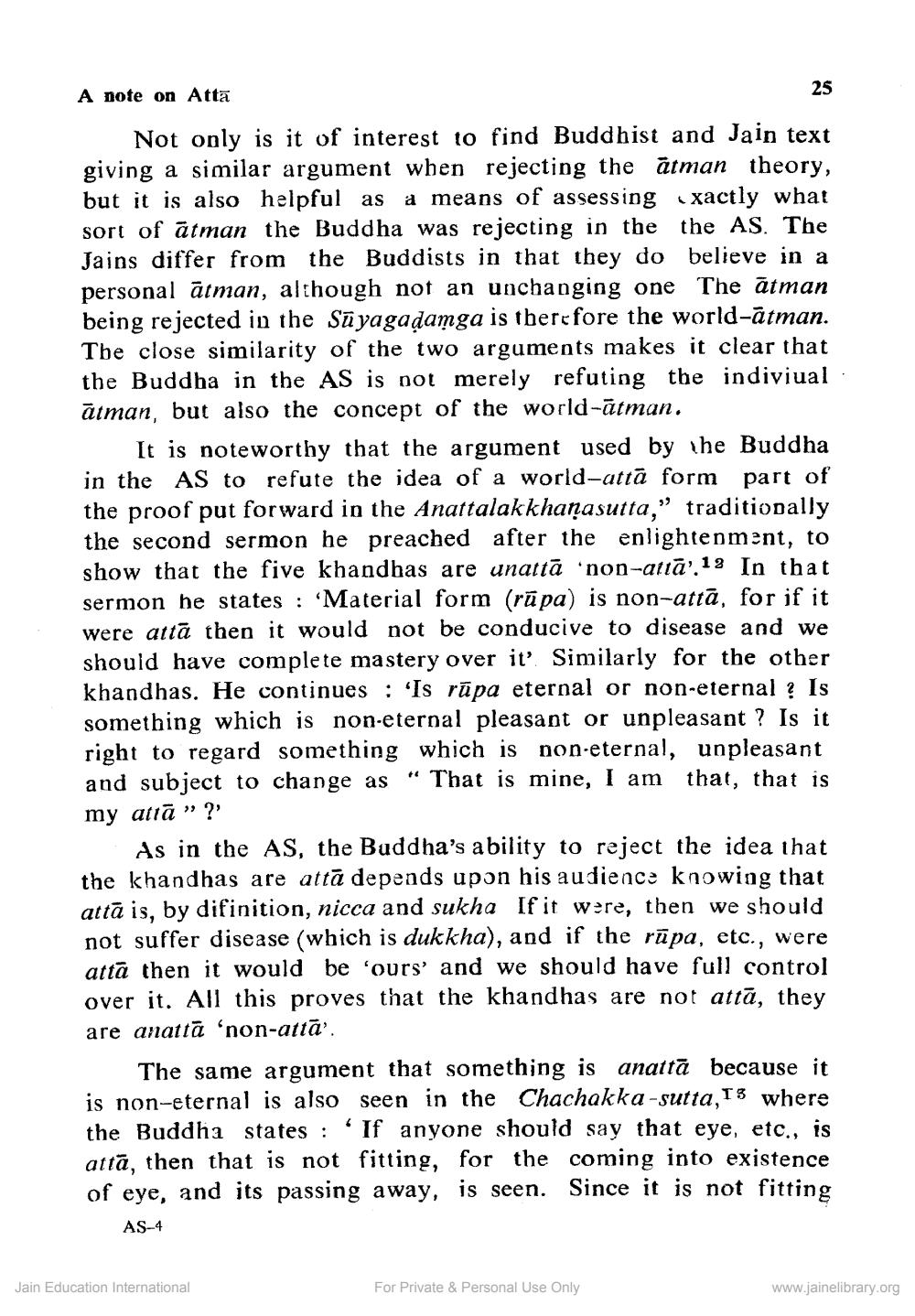________________
A note on Attā
Not only is it of interest to find Buddhist and Jain text giving a similar argument when rejecting the atman theory, but it is also helpful as a means of assessing exactly what sort of ātman the Buddha was rejecting in the the AS. The Jains differ from the Buddists in that they do believe in a personal ātman, although not an unchanging one The ātman being rejected in the Sūyagadamga is therefore the world-ātman. The close similarity of the two arguments makes it clear that the Buddha in the AS is not merely refuting the indiviual ātman, but also the concept of the world-ātman.
It is noteworthy that the argument used by the Buddha in the AS to refute the idea of a world-attā form part of the proof put forward in the Anattalakkhaņasutta,” traditionally the second sermon he preached after the enlightenment, to show that the five khandhas are unattā non-atta'.13 In that sermon he states : Material form (rūpa) is non-attā, for if it were attā then it would not be conducive to disease and we should have complete mastery over it'. Similarly for the other khandhas. He continues : 'Is rūpa eternal or non-eternal ? Is something which is non-eternal pleasant or unpleasant ? Is it right to regard something which is non-eternal, unpleasant
to change as " That is mine, I am that, that is my attā” ?
As in the AS, the Buddha's ability to reject the idea that the khandhas are attā depends upon his audience knowing that attā is, by difinition, nicca and sukha If it were, then we should not suffer disease (which is dukkha), and if the rūpa, etc., were atta then it would be 'ours' and we should have full control over it. All this proves that the khandhas are not attā, they are anatta 'non-attā'.
The same argument that something is anatta because it is non-eternal is also seen in the Chachakka-sutta, 13 where the Buddha states : “If anyone should say that eye, etc., is attā, then that is not fitting, for the coming into existence of eye, and its passing away, is seen. Since it is not fitting
AS-4
and
and Subjecu
Jain Education International
For Private & Personal Use Only
www.jainelibrary.org




